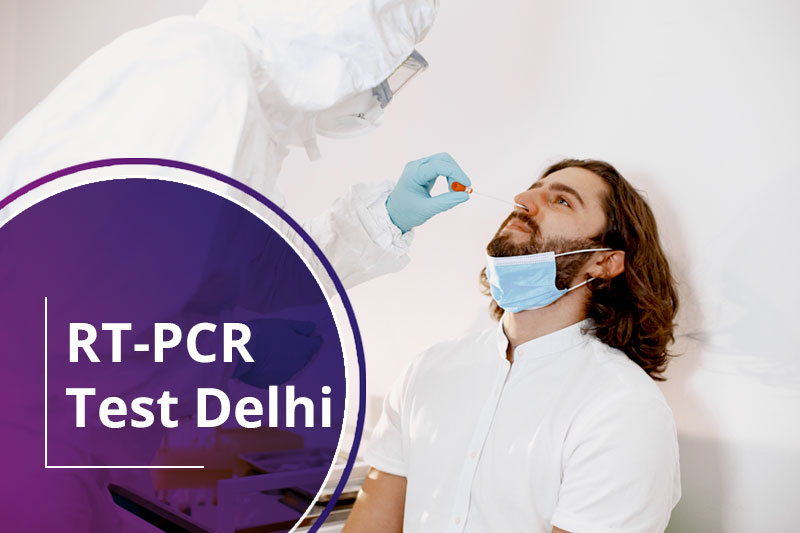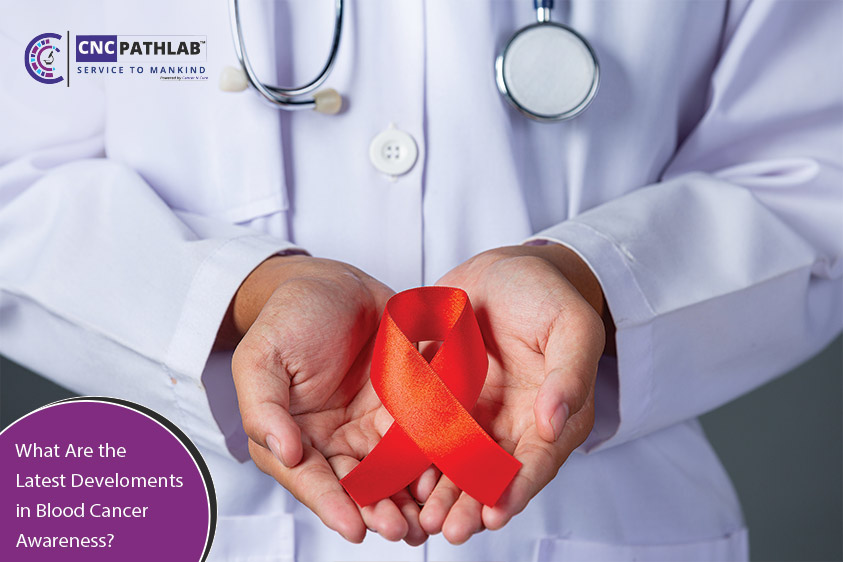Why RT-PCR Test is essential for Covid-19?
From the beginning of a New Year, Delhi continued to witness a decline in Covid-19 as we suffered from the 3rd wave of coronavirus as a variant of Omicron. Corona has an impact on everyone's way of life. Despite the fact that it has an impact on the country's economic situation. Covid has impacted the lives of over a million people around the world in the last two years. Every day, new variations with numerous mutations appear. This Omicron had a far greater impact and is spreading rapidly. The country is dealing with the third wave of coronavirus as a result of omicron.
Testing is increased up and done at a faster rate after the initial wave of coronavirus. The testing is progressing quickly. Health workers, government officials, and scientists can use these tests to uncover more variations and mutations, as well as a treatment. The Indian government provided a variety of services in order to make these tests possible. The government provides RT-PCR detection tests, Antibody Tests, and Rapid Antigen Tests.
Reverse transcription-polymerase chain reaction (RT-PCR) is an acronym for a reverse transcription-polymerase chain reaction. For the new coronavirus disease, an RT-PCR test is considered one of the most accurate tests. For the identification of viral particles in patients, and RT-PCR test requires a nasopharyngeal swab/oral swab/nasal swab. With the use of an RT-PCR test kit, trained specialists perform the test. It entails the extraction of Covid-19 virus genetic material (RNA). The Covid-19 RT-PCR testing detects SARS-COV-2 virus-specific genes (the virus that causes Covid-19 disease).
Since the beginning of the pandemic in India, it has been the most effective and reliable test. This test is preferred by many experts for detecting the virus in humans. In the beginning and until now, the RT-PCR test Delhi was the first and only totally proven assay to detect the COVID virus. However, many new test kits are now available, such as the Rapid Antibody Test and the Rapid Antigen Test. It is done by taking swabs from the nose and throat of patients to check for Covid infection. Other testing kits are less recommended for tracing the illness in person than the RT-PCR test Delhi.
If you have RT-PCR from any place in Delhi, you will receive notifications for it. The RT-PCR test Delhi is performed by skilled specialists using an RT-PCR kit. It entails extracting Covid virus genetic material from the human body in order to discover genes specific to the SARS-COV-2 virus.
Who needs to have Covid-19 RT-PCR?
Fever, runny nose, difficulty breathing, loss of smell and taste, body ache, headache, dry cough, and sore throat are some of the most common flu-like symptoms of the coronavirus. Because the symptoms of a regular cold and a coronavirus are so similar, many people get them mixed up. As a result, if a person has had any experience with one of the symptoms and is concerned, the ICMR recommends that a Covid-19 RT-PCR test be performed.
The RT-PCR test in Delhi is safe for both kids and senior citizens. In fact, it is a simple process of genetic material. People of all ages especially those aged and children should seek medical attention right away if they feel or have any symptoms of COVID. Should contact their health care provider or nearby hospitals or clinics.
RT-PCR assay throughout pandemics is one of the best tests for detecting the covid virus in Delhi. It is really dependable and effective. RT-PCR is recommended by the Delhi government over the Rapid Antigen Test. Because it provides a 100 percent correct outcome. In Delhi, the RT-PCR screening test for all passengers is now completed in about 30 minutes. The Delhi airport has 35 fast RT-PCR testing devices in operation. Traveling from or to Delhi necessitates the completion of an RT-PCR test. The RT-PCR tests used to determine the presence of coronavirus in the human body were all quite accurate. It aids in the detection of coronavirus and also functions as a shield, preventing the infection from spreading from infected to uninfected people.
At the time of booking, no documentation is necessary. The individual merely needs to provide some basic information. A person must fill out the ICMR referral form in government hospitals or institutions in Delhi after scheduling a slot. Private labs, on the other hand, can register their customers' information in the ICMR referral form if they have government authorization. A government-issued photo ID (Aadhar Card, Voter ID, Passport, Pan Card, Driving License) is required at the time of sample testing, as well as a booking ID.
The rate of COVID-19 tests in private labs and hospitals has been capped by the Delhi government.
Private labs in Delhi have decreased the rates for traditional RT-PCR and RAT tests for COVID-19. The RT-PCR test has a price cap of ₹300, while the price for home sample collection has a price cap of ₹500. The cost of a Rapid Antigen Test has been fixed at 100 by the Minister of Health.
Why take Covid -19 RT-PCR Test in Delhi?
You should get tested if you have COVID-19 symptoms or have been exposed to persons who have symptoms or have tested positive.
- This test looks for the genetic material of the virus itself.
- If you are COVID positive, you will be able to self-isolate and receive the appropriate therapy as soon as possible.
- It is the most accurate and reliable test for detecting a current infection in the body.
- If you are traveling to specified states, you must get tested for COVID-19. The RT-PCR test has various laws and standards in each state. Be informed about these rules and travel accordingly.
- As the number of current cases in India has increased, this test has become increasingly important to keep yourself and others safe.
- It is the most accurate and reliable test for detecting a current infection in the body.
What method of sample collection is used for the RT-PCR Delhi covid test?
Nasal Swab Testing: A long stick with a soft brush on the end is inserted into the nose, collecting a sample for analysis. The swab must travel inside the nose to capture cells and fluids from the entire channel that connects to the base of the nose.
Throat Swab Testing: This type of testing involves obtaining a sample of the person's saliva.


.jpg)


.jpg)
